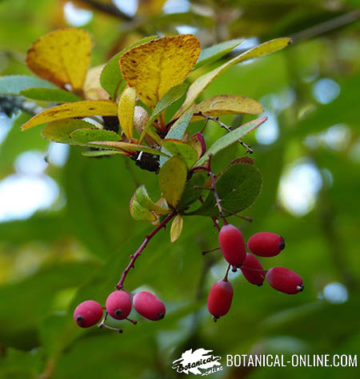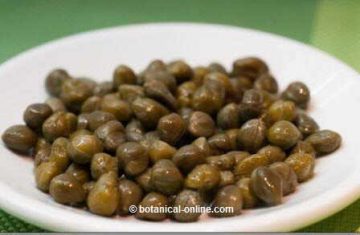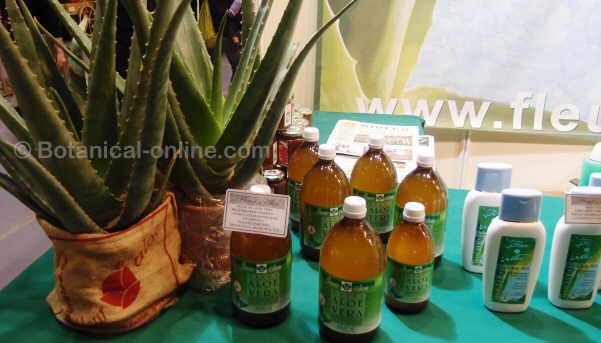Contents
- 1 Natural medicine for arthritis
- 1.1 Medicinal plants traditionally used for the treatment of arthritis
- 1.2 Remedies in the pantry for arthritis
- 1.3 Other medicinal plants for rheumatoid arthritis
- 1.4 Anti-inflammatory oils for arthritis
- 1.5 Depurative plants for arthritis
- 1.6 Precautions in the use of depurative plants
- 1.7 The best plants for arthritis
- 1.8 Antirheumatic plants for arthritis
- 1.9 Essential oils for arthritis
Natural medicine for arthritis
Medicinal plants traditionally used for the treatment of arthritis
Below are described numerous preparations with medicinal plants, therapies that are traditionally used to improve arthritis:

Barberry fruits Lime and lemon: their juice, squeezed and diluted in water, is effective against arthritic inflammation due to their vitamin C content and their properties to regulate inflammation through the immune response (Take juice diluted in water).
- Boswellia (Boswellia serrata): It consists of the gummy resin of a tree, and is a natural remedy used in Ayurvedic medicine against joint pain and inflammation. The plant’s active principles are boswellic acids, which have anti-inflammatory properties. (Take 150 mg of boswellic acid three times a day, equivalent to 400 mg of standardized extract daily, for 12 weeks. Follow package directions.)
- Berberine (barberry extract): Berberine has promising properties that make it a potential future drug candidate for the natural treatment of rheumatoid arthritis and osteoarthritis (How to take berberine).
- Matricaria (Tanacetum parthenium): It can be effective in treating people with rheumatoid arthritis due to its anti-inflammatory properties (Infusion of the flower heads).
- Linden (Tilia x europaea, Tilia platyphyllos, Tilia cordata): Linden flowers have diaphoretic properties, meaning they increase body sweating. Through sweat, the body is able to eliminate many toxins, which is why sweating profusely is very effective in cases of rheumatism. Eliminating toxins through sweat can lighten joints and reduce the discomfort caused by these diseases. (Infusion of half a teaspoon of dried flowers per cup of water. Drink a couple of cups a day. Continue the treatment for a couple of weeks).
- Guarana (Paullinia cupana): Amazonian people traditionally use guarana extract to prepare analgesics.
Remedies in the pantry for arthritis
Some anti-inflammatory and anti-arthritic plants can be used regularly in your diet, such as garlic, rosemary, ginger, turmeric, pineapple, mint, and lemon. In a diet for arthritis it is recommended to regularly eat these foods, for example, adding garlic or turmeric to recipes, squeezing ginger into vinaigrettes or infusions, seasoning recipes with lemon juice, or cooking with mint.
* Related information: Properties of aromatic herbs
Other medicinal plants for rheumatoid arthritis

Capers Capers (Capparis spinosa): The polyphenols in this plant have a greater protective role on joints than some medications. Adding capers to salads can help improve joint health. They are suitable for arthritis, in a ligament-supporting diet, and in a diet for knee and joint recovery.
- Cardamom (Elettaria cardamomum): Cardamom, due to its high cineole content, is suitable for the treatment of arthritis. (Include cardamom seeds in your meals. See cardamom recipes).
- Heather – ling (Calluna vulgaris): A plant with recognized properties for increasing urination and eliminating fluid retention in the joints of people with arthritis. (One and a half tablespoons of dried flowers per cup of water. Let it steep for 10 minutes. Drink three cups a day).
- Pansy (Viola tricolor): (Infusion of one teaspoon of dried plant in 1 cup of water, three times a day).
- Wormwood (Artemisia absinthium): Wormwood has anti-inflammatory properties that are provided by its richness in ascorbic, chlorogenic, and salicylic acids, as well as its flavonoids artemetin and rutin. On the other hand, we must not forget that this plant has diuretic properties, which can increase fluid production. (Infusion of half a teaspoon of the dried plant per cup of water for 10 to 15 minutes. Drink three sweetened cups daily.)
- Goldenrod (Solidago virgaurea): (Infusion of 1 teaspoon of flowering tops per cup, let it stand for 5 minutes. Take 2 times a day).
Anti-inflammatory oils for arthritis
Ingesting enough healthy omega 3 and omega 6 fats will provide the body with its own natural resources to reduce inflammation. This is because, in the body, these fats are necessary to produce prostaglandins, anti-inflammatory substances. It is important to mention that, for the metabolism of these fats to be carried out correctly, it is necessary to accompany them with a healthy diet and avoid bad fats.
The foods and supplements richest in anti-inflammatory fatty acids are:
- Ground flax, chia, or hemp seeds: All three seeds are rich in omega-3 fatty acids, as well as other components that increase their nutritional value, such as magnesium, fiber, and protein. (Take 2-3 teaspoons of ground seeds daily. Keep refrigerated.)
- Evening primrose oil (Oenothera biennis): Regular use of this supplement for a period of 6 months helps improve conditions, resulting in less joint pain and greater joint flexibility. Studies conducted in the United States applied doses of 2.5 g of GLA per day for a period of 6 months. This study showed that patients had less pain and that their joints were less swollen. (The usual doses taken in this case are about 3,500 mg of evening primrose oil daily)
- Blackcurrant oil (Ribes nigrum): Blackcurrant oil has anti-inflammatory properties in joint diseases. Its use is highly convienient for conditions such as rheumatoid arthritis. Blackcurrant oil inhibits the formation of cytokines, which cause inflammation. (The usual dose is 500 mg daily.)
- Flaxseed oil: Flaxseed is a seed rich in omega-3 fatty acids, a type of fat that provides anti-inflammatory properties. (Dose of 1,500 to 2,000 mg of oil pearls per day. Keep refrigerated.)
- Borage oil (Borago officinalis): In addition to being an excellent vegetable with proven diuretic properties, it also stands out for its richness in essential fatty acids (EFAs). For this purpose it should be consumed as a supplement. (1000 mg of borage oil contains approximately 240 mg of gamma-linolenic acid (GLA), which is the amount typically used in most treatments.) (Same uses as evening primrose oil.) (See toxicity)
Depurative plants for arthritis
Depurative plants are those that manage to eliminate toxins from the body by purifying it. Depurative plants are very suitable for helping to overcome the unpleasant effects that come with the onset of the disease, especially those related to fluid accumulation in the joints.
Precautions in the use of depurative plants
Most of these plants produce a benefit by purifying the body by increasing urination, so they should not be taken in cases of low blood pressure.
Likewise, the presence of tannins in many of these plants can cause intestinal discomfort and their use should be avoided when the patient has a gastrointestinal ulcer or gastritis.
The best plants for arthritis
This page lists all the traditional remedies for arthritis. However, we have listed the best plants for arthritis, the most commonly used ones, discussed in the following link: Best medicinal plants for arthritis
Antirheumatic plants for arthritis
Antirheumatic plants are those that help prevent the onset of rheumatic diseases because they contain antirheumatic components in their composition.
Among all its components, we would mention the following: ascorbic acid, salicylic acid, anisic acid, thymol, cineole, menthol, lupeol, and tryptophan. Using these plants frequently is a good way to prevent the onset of rheumatic diseases. Among the main plants that help prevent or remedy joint pain are the following:
- Plants rich in ascorbic acid
- Plants rich in salicylic acid
- Plants rich in anisic acid
- Plants rich in thymol
- Plants rich in cineole
- Plants rich in menthol
- Plants rich in lupeol
- Plants rich in tryptophan
Essential oils for arthritis
Eucalyptus essential oil, chamomile essential oil, or juniper essential oil are suitable for the treatment of arthritis.
![]() More information on natural remedies, diet, and supplements for arthritis
More information on natural remedies, diet, and supplements for arthritis










